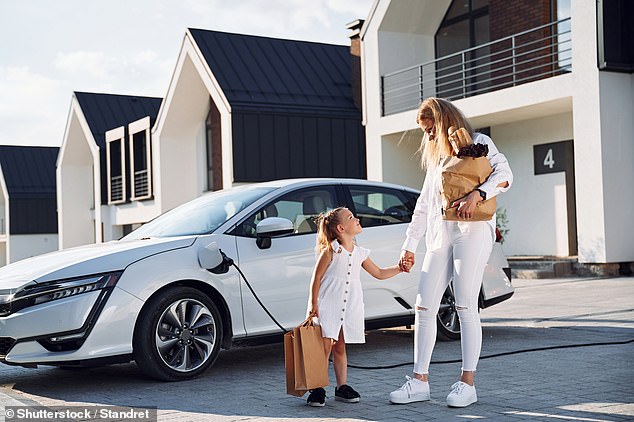Buying a new EV: Men prioritize price and range, but women come first
- Price and range are the two purchasing factors that are highest when buying an EV
- 23% of buyers would consider an EV from a brand they are not familiar with
- Gender and generational preferences differ – and women are safety conscious
The key factors drivers consider when choosing a new electric vehicle (EV) have been revealed in a new study.
Price and range are the two purchasing factors that new EV buyers prioritize most, at 52 percent and 45 percent respectively in the Direct Line EV Insurance poll.
And with more than 18 new EV brands having launched or about to launch in the UK – including Ora, BYD, Fisker, Chery and Leapmotor – new brands could make people reluctant to buy.
But this appears not to be the case, with only 10 percent of drivers citing brand as an important factor when considering an electric car, presenting a great opportunity for lesser-known EV brands entering the UK market.
The most important factors when buying a new EV have been revealed, with price and range topping the list at 52 percent and 45 percent respectively in new research from Direct Line EV Insurance
After range and price, drivers told Direct Line EV that build quality (20 percent) and safety (18 percent) are the most important factors to consider.
Cheap operating costs and savings on smart charging were not ranked.
Electric cars have been found to reduce stress while driving, but driving experience scores low in terms of purchasing factors.
In 2022, DS Automotives surveyed 2,000 drivers and found that 38 percent of those driving a car with an electrified powertrain said their current electric car makes them feel calmer compared to their previous petrol or diesel car.
But Direct Line EV found that only 16 percent of men said this was the most important factor, and only 13 percent of women.
Broken down by gender, interesting purchasing patterns emerged between men and women.
While both prioritized price equally (52 percent), men are more concerned about range: 47 percent say range is the most important purchasing factor, compared to 43 percent of women.
Women prioritized safety (23 percent versus 13 percent for men) but didn’t care as much about build quality. 26 percent of men voted for build quality as a key purchasing consideration, but only 14 percent of women.
But both genders valued reviews (14 percent) as much as they valued the brand (10 percent).

Women consider safety as an important purchasing decision when buying a new electric car, much higher than men: 23 percent versus 13 percent for men
Michelle Breffit, co-founder of Women Drive Electric, said: ‘Women will place great importance on safety features and ratings when buying a car.
‘Electric cars are new technology and human nature makes us weary of change, regardless of gender, so that’s why it’s extremely important that the car industry explains all safety features in a non-jargon way so that everyone can understand the protection they have in an EV.
‘The research fits with the trend for women to be more risk-averse – we want to know if we can get home in a reliable and safe car, especially as a woman’s car journey is more likely to take place with a child or an older relative as a passenger.’ .

Michelle Breffitt says women are more safety conscious
Differences are also generational, especially when it comes to price.
Young people are less focused on price than older generations: 47 percent of 18 to 34 year olds consider price important, compared to 57 percent of 35 to 54 year olds. 51 percent of people over 55 say that price is important.
Image-conscious young people consider the brand important (17 percent), compared to 10 percent of 35 to 54 year olds. Only 5 percent of older participants aged 55 and older consider the brand important.
With young drivers growing up in a world of electric vehicles and half of students wanting electric driving lessons, it is not surprising that range scores much lower in purchasing considerations: only 34 percent of 18 to 34 year olds say range is important .
And many electric vehicles these days have a range that can get you from London to Edinburgh on a single charge, allaying range fears.
Range becomes more important as older drivers get older, with 45 percent of 35 to 54-year-olds saying it is a priority when buying an electric car, and 53 percent of those over 55.

